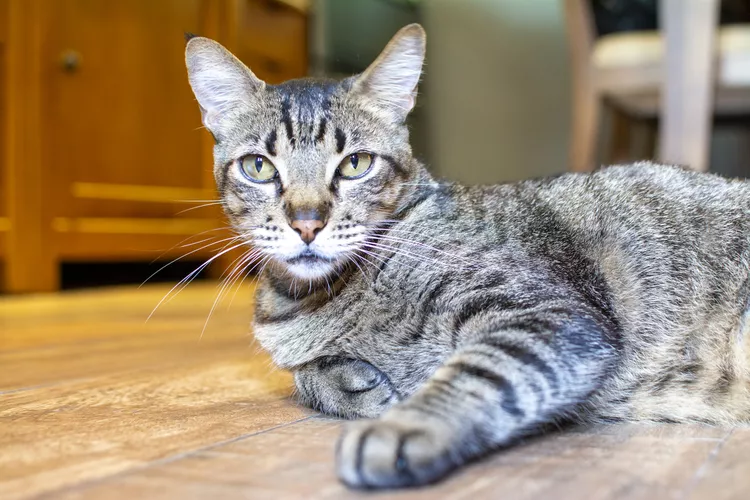
Descended from Brazilian street cats, today, the Brazilian Shorthair is admired for its beautiful, short and shiny coat, and loved for its friendly, playful, and intelligent personality.
A larger cat breed, the Brazilian Shorthair can weigh anywhere up to 20 pounds. They are muscular and agile while still maintaining their elegant, cat-like grace. These felines boast very expressive, wide-set eyes and almost any coat color under the sun. Full of energy and a love for exploration, these cats are characterized by their playful antics and make fun, friendly pets.
Other Names: Pelo Curto Brasileiro
Personality: Confident, inquisitive, playful, friendly, energetic
Weight: Up to 22 pounds
Length: 12 to 16 inches
Coat Length: Short hair
Coat Color: Any natural feline color, including black, white, gray, red, brown, and cream
Coat Patterns: Any natural feline pattern, including solid, bi-color, tabby, tuxedo, calico, and tortoiseshell
Eye Color: Any natural feline eye color, including green, gold, amber, blue, and brown
Life Expectancy: 15 to 20 years
Hypoallergenic: No
Origin: Brazil
The Brazilian Shorthair is a friendly and outgoing cat that loves to spend time interacting not only with its human family members, but also with other household cats and dogs. This is a fine breed for a family, as it requires a lot of attention, play time, and affection, which many children are more than happy to supply. But although it can seem that the breed has endless energy, once playtime is over it is happy to cuddle up with a favorite human for some quality time and petting.
If you bring a Brazilian Shorthair into your home, be prepared with plenty of toys to keep it occupied, as well as one or more cat trees to provide opportunities for climbing, exploring, and exercising. These are active cats that like to keep busy.
The Brazilian Shorthair originated from the common street cats of Brazil. It is thought that these felines first entered Brazil around the year 1500 CE aboard the ships of Portuguese sailors. The breed’s development is credited to Paulo Samuel Ruschi, an engineer who became interested in the appearance and genetics of the street cats in Brazil. With help and input from other cat breeders, he began breeding Brazilian street cats in the hope of creating a set breed.
In 1998, the World Cat Federation approved the Brazilian Shorthair as a recognized purebred cat breed. However, the breed has not yet received recognition from TICA or CFA.
The Brazilian Shorthair is a friendly cat breed with an outgoing personality. The social street-cat mentality remains in these purebred felines, making meeting new people and exploring new places right up their alley. These cats thrive with plenty of attention, play, and snuggle time. Their social, playful, energetic nature also makes them perfect feline companions for children.
These cats love to run around and explore, so be sure to give them enough space for adventuring and expending energy. Playtime is a perfect way to both exercise and spend time with your Brazilian Shorthair. Cat trees, playgrounds, and scratching posts are well-loved by this breed and will ensure that your cat is happy, enriched, and entertained. However, when it is time to wind down, your Brazilian Shorthair will be just as happy snuggling on the couch with you.
As suggested by its name, the Brazilian Shorthair has a very short coat that does not shed much or produce much dander, although the breed is not truly hypoallergenic. This makes grooming very simple. Brushing once a week should be plenty to keep your Brazilian shorthair's coat clean and in good condition. Remember to regularly brush its teeth and check its nails and ears as well.
Brazilian Shorthairs have retained the street-smarts from their ancestors, making them sharp, intelligent felines. They learn new things quickly and love to be challenged. This makes them an excellent breed to teach tricks.
The Brazilian Shorthair is a relatively robust and active breed with no common, breed-specific health problems known. However, cat owners should be on the lookout for common issues that may arise in any breed, such as obesity and ear infections. And of course, any cat might develop a health problem or disease during its lifetime, so be sure to take your Brazilian Shorthair for regular checkups with the veterinarian. This makes it likelier that you'll detect potential health problems before they become serious.
The Brazilian Shorthair is a large cat; males can weigh more than 20 pounds. These cats are longer than they are tall, and while they are muscular, they aren't too stocky in build. They have large, pointed ears set well apart and equally large eyes. Their fur is short and sleek, with very little undercoat. This means that they don't shed much.
When it comes to color, just about anything goes. Your Brazilian Shorthair can be any color that naturally occurs in felines, including black, white, gray, brown, red, or cream. And any coat pattern is acceptable, including solid, tabby, calico, tortoiseshell, tuxedo, or bi-color. The one coat pattern that isn't allowed in a purebred Brazilian Shorthair is "points," which are the darker face, legs, and tail typical of the Siamese cat.
Brazilian Shorthairs can have any eye color, including blue, brown, amber, orange, green, or yellow.
Feeding your Brazilian Shorthair high-quality cat food will help ensure that it lives a long and healthy life. Every cat will have its own likes, dislikes, and dietary needs, but in general, cats require a diet that is high in protein, moderate in fats, and low in carbohydrates. Most adult cats do well with two meals per day, while kittens need three to four smaller meals. Your cat should always have access to clean water.
You can feed your cat all kibble, all canned food, or a mixture of both. They key is not to overfeed your feline, as obesity is a common concern among indoor cats. Consult your veterinarian for more information on your cat’s unique dietary needs.
Because the Brazilian Shorthair is an uncommon breed outside of its native country, it may be a bit tricky to find a rescue or breeder in the United States. However, always be sure to check your local shelters and rescue groups since a wide variety of circumstances can result in this rare breed being surrendered. The links below will help you find shelters, rescues, and breeders in your area.
The large and active Brazilian Shorthair is a great breed for families, as this playful cat loves opportunities for play and interaction with humans young and old, as well as other household pets. Curious and intelligent, this is a breed that likes to have ample chances to explore, climb, perch, and observe, but it is also affectionate and outgoing.
It's short, easy-care coat makes this a fairly low-maintenance cat, which adds to its suitability for life in a busy family. But your Brazilian Shorthair won't be happy if it's left alone all day long, so be sure that your lifestyle allows for plenty of time spent with your feline.
Little shedding
Loving and affectionate
Does well with children and other pets
Inquisitive nature means they like to get into things
Requires lots of mental and physical stimulation
Rare breed that's difficult to find
Every cat breed has its own typical personality traits. Careful research will help ensure that you find the perfect breed to suit your home and lifestyle.
If you’re interested in other cat breeds similar to the Brazilian Shorthair, check out:
Otherwise, check out all of our other cat breed profiles.
As a rare breed, you'll pay quite a bit for a Brazilian Shorthair, if you can find one. As a rough guideline, a show-quality cat can cost over $1,000, but breeders sometimes sell "pet quality" cats for much less.
Although these cats shed very little, they are not truly hypoallergenic. Still, for those with very mild cat allergies, this breed might be a good fit.
Every cat is an individual, and some enjoy being held more than others. But as a general rule, Brazilian Shorthairs are friendly, outgoing, and affectionate cats who enjoy interacting, cuddling, and playing with their favorite humans, so there is a good chance that your cat will also enjoy being held.

10 Obscure, Little-known Canine Facts in Honor of National Dog Day
With National Dog Day upon us, it's time to celebrate everything about our favorite pets—even the weirder stuff. Here are 10 obscure facts about dogs you probably didn't know.
Exploring the Different Types of Pet-Friendly Beaches
Are you looking for pet-friendly beaches? Learn about the different types of pet-friendly beaches, their locations, and tips for visiting them with your pet.
Toxic Chemicals & Household Items That Can Poison Dogs
There are many things in and around your home that can endanger your dog. Learn which chemicals and household items can poisin your dog.
Bronchitis in Dogs
Is your dog coughing and feeling unwell? It could be due to respiratory inflammation called bronchitis. Learn the causes, treatment, and prevention.
Choking in Dogs
A dog can occasionally swallow something incorrectly and start choking. Find out how you can tell if your dog is choking and what you can do about it.
Why Does My Dog Smell So Bad?
Does your dog smell? Find out what could be causing these unpleasant odors and if it's something that needs more than just a bath to fix.
Is Rosemary Safe for Dogs?
Rosemary is used both for cooking and as a supplement with many reported health benefits in people, so you may be wondering if it is safe to give to your dog. Rosemary is considered non-toxic for dogs but with some caveats.
Can Dogs Eat Blueberries?
Dogs can safely eat blueberries. Blueberries are packed with nutrients and can be a great addition to your dog's diet when fed in moderation. Learn more about the benefits, risks, how to incorporate blueberries into their diet, and other fruits dogs can eat.
Dog Food Basics
Are you feeding your dog the best way possible? Check out these dog feeding tips to keep your dog healthy and happy.
Swedish Vallhund: Dog Breed Characteristics & Care
The Swedish vallhund makes for a high-energy and affectionate companion. Learn about the breed's history, health, exercise needs, and more.
Becoming a Show Dog: Getting Started
Do you have the perfect puppy? Have you considered showing her in a dog show? There's much more to showing than showing up! Here's how to get started.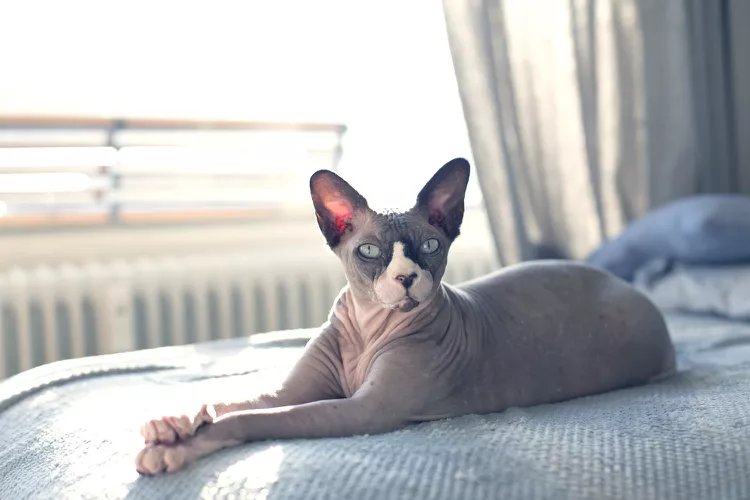
How to Care for a Hairless Cat
Hairless cats make great pets but they aren't without their own challenges and requirements. Read on to learn how to best care for your furless feline.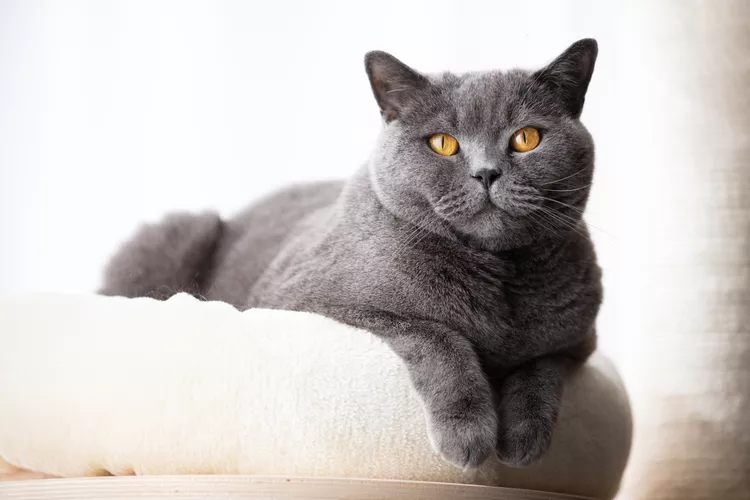
British Shorthair: Breed Profile, Characteristics & Care
The British Shorthair is a calm, affectionate cat that looks and feels like a plush teddy bear. Here's what you need to know about this popular breed, including appearance, temperament, health, and care.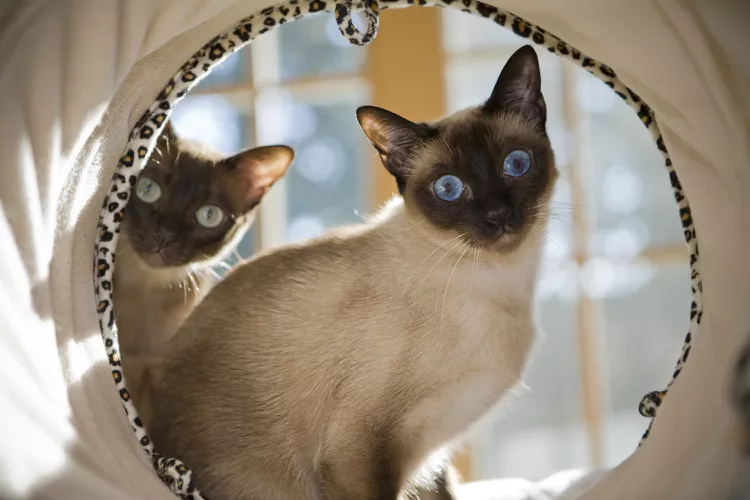
Tonkinese: Cat Breed Profile, Characteristics & Care
The Tonkinese cat is a perfect mix of the Siamese and Burmese—smart, sociable, and sweet. Learn about the Tonkinese breed.
How to Stop Your Cat From Chewing Electrical Cords
Cats are known to pounce and attack inanimate objects, like electrical cords. Learn how to prevent your cat from ambushing objects that may harm it.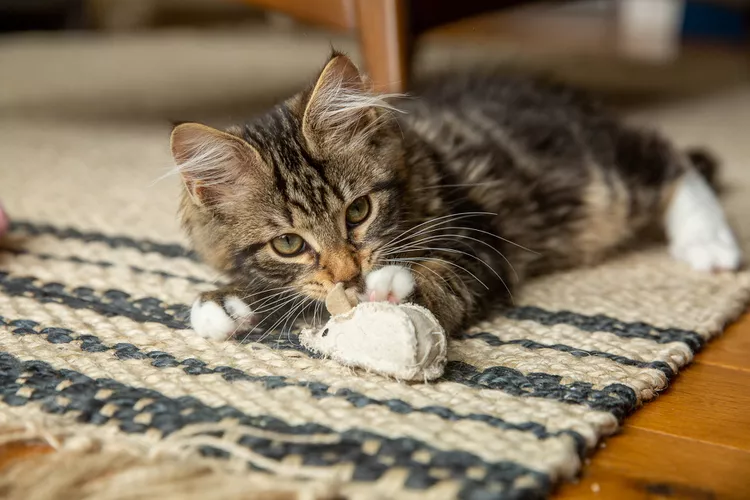
How to Stop Aggression in Kittens
Kittens may show aggressive behavior for several reasons. Sometimes their play gets too aggressive while other times the kitten is afraid or upset. Learn how to spot and curb aggression in kittens.
46 Egyptian Cat Names
Whether inspired by notable Egyptian deities, locales, or pharaohs, Egyptian cat names can bring out the divinity of your noble feline companion.
How to Tell If a Kitten is a Boy or a Girl
If you're wondering whether your new kitten is a boy or a girl, here are three ways to help determine the sex of your cat.
Signs Your Cat Is Aging and When to See the Vet
Expect some changes when your cat ages. Learn to differentiate between normal and potential medical problems for your elderly cat.
Coronavirus in Cats
Feline coronavirus (FCoV) rarely harms cats but can lead to another life-threatening illness. Learn the causes, treatment, and prevention.